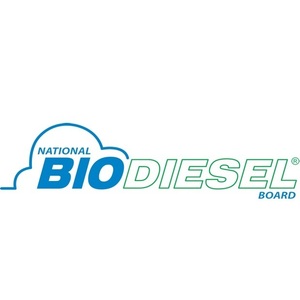NBB celebrates RFS anniversary, urges future support from EPA

August 9, 2021
BY National Biodiesel Board
This weekend marked the 16 anniversary of the Renewable Fuel Standard, or RFS, a policy that has played a keystone role in decarbonizing America’s diesel fuel supply. On the heels of the anniversary, National Biodiesel Board CEO Donnell Rehagen noted the sustainable growth of the biodiesel industry under the RFS and urged policymakers to continue supporting future growth.
“The Renewable Fuel Standard has been crucial to growing the advanced biofuel industry, and it will remain essential for future decarbonization efforts across the country,” Rehagen said. “The RFS supported the sustainable growth of a 3-billion-gallon market for biodiesel and renewable diesel that has cut 143.8 million metric tons of carbon emissions over the past decade. We cannot afford to lose ground now. This policy should support continued growth of advanced biofuels as our industry strives to reach 6 billion gallons by 2030.”
Advertisement
Created under the Energy Policy Act of 2005 and expanded to specifically include biodiesel and renewable diesel, jet fuel, and heating oil under the Energy Independence and Security Act of 2007, the RFS drives the development of advanced biofuels that reduce carbon emissions from some of the hardest economic sectors to decarbonize.
Made from a diverse array of feedstocks, biodiesel and renewable diesel are renewable, clean-burning diesel replacements that reduce greenhouse gas emissions by 74% on average while creating domestic jobs and reducing air pollutants linked to cancer, asthma and other health conditions. These fuels are the first commercially available nationwide to meet the Environmental Protection Agency’s definition of an advanced biofuel under the RFS.
Advertisement
Related Stories
The USDA has announced it will delay opening the first quarterly grant application window for FY 2026 REAP funding. The agency cited both an application backlog and the need to disincentivize solar projects as reasons for the delay.
Neste and DHL Express have strengthened their collaboration with the supply of 7,400 tons (9.5 million liters) of neat, i.e. unblended, Neste MY Sustainable Aviation Fuel to DHL Express at Singapore Changi Airport starting July 2025.
CoBank’s latest quarterly research report, released July 10, highlights current uncertainty around the implementation of three biofuel policies, RFS RVOs, small refinery exemptions (SREs) and the 45Z clean fuels production tax credit.
The U.S. Energy Information Administration maintained its forecast for 2025 and 2026 biodiesel, renewable diesel and sustainable aviation fuel (SAF) production in its latest Short-Term Energy Outlook, released July 8.
XCF Global Inc. on July 10 shared its strategic plan to invest close to $1 billion in developing a network of SAF production facilities, expanding its U.S. footprint, and advancing its international growth strategy.
Upcoming Events










